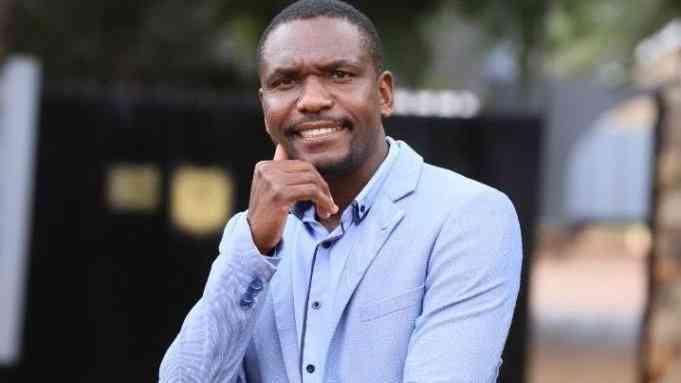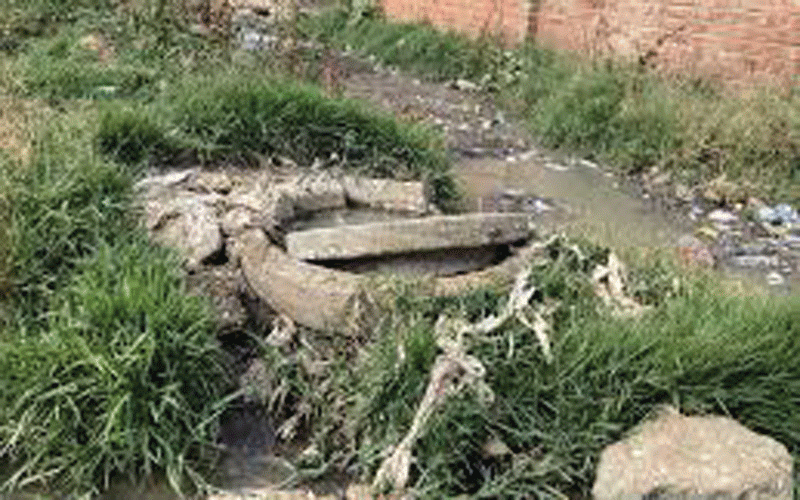
IN February, Blessed Mhlanga, the host of the Zimbabwean digital news and talk show Free Talk, was arrested and charged with inciting violence.
Mhlanga, who is 45, had recently interviewed a war veteran and former intelligence officer who has emerged as a leading critic of Zimbabwean President Emmerson Mnangagwa, although the exact precipitating event for his arrest was not made clear.
Six years after the death of Robert Mugabe, who brutally ruled the country for nearly 40 years, Zimbabwe is still not an easy place to practise journalism.
While the country’s latest Constitution technically guarantees freedom of expression and media rights, the country typically scores low in global freedom and corruption indexes.
In recent years, according to Reporters Without Borders, Mnangagwa’s government has stepped up efforts to suppress critical voices, including signing a new cybersecurity law that, among other things, makes the online distribution of information deemed false punishable by up to five years’ imprisonment.
In July, Faith Zaba, the editor of the Zimbabwe Independent, was arrested for “undermining or insulting the authority of the president” after publishing a satirical opinion column that called Zimbabwe a “mafia State”.
Mnangagwa, who was a close ally of Mugabe, has been seeking to amend the Constitution to allow him to run for a third term, in 2028.
All this has pushed Mhlanga to create a space for critical voices.
- Letter to my people: The experiment has failed spectacularly
- Village Rhapsody: Zimbabwean journalists under siege
- AMH journalists arrested
- Letter to my people: The experiment has failed spectacularly
Keep Reading
In 2022, he and another journalist, Chengeto Chidi, were arrested and had their recording devices damaged while attempting to document the detention of an opposition politician.
Earlier this year, Mhlanga faced police investigation after he interviewed political activist Jealousy Mawarire, who alleged that Mnangagwa was engaged in secret efforts to sell a State-owned bank to private investors.
His latest prosecution earned him 10 weeks in prison before he was granted provisional release, pending trial.
This conversation with Nalova Akua (NA), conducted over WhatsApp, has been edited for concision and clarity.
NA: Why do you think the authorities arrested you — and why were you later released?
BM: I would not know the real motives behind my arrest and detention.
Whether it was meant to silence me or instil fear in me, what’s certain is that it achieved the opposite.
I was denied bail three times — twice by the Magistrates Court and once at the High Court.
I don’t know on what grounds they denied me bail because our Constitution makes bail a right, which should only be denied where there are compelling reasons to do so.
In my case, there were none and, therefore, the courts were supposed to grant me bail at my first appearance.
I can only, therefore, say after 72 days of jailing an innocent journalist, they could not keep him in prison any longer because of international and local pressure.
I was ordered to pay US$500 bail, report every Friday to the police, stay at my given address and surrender my passport.
NA: What was prison like?
BM:It was hell on earth. I suffered emotionally as I was jailed for no crime in the section where the most dangerous criminals are found.
Physically, I slept in overcrowded cells infested with bedbugs and managed by cruel prison guards who think dehumanising accused persons is their job.
I survived because of solidarity and support from fellow inmates and the outside world.
It was also expensive. The government has no capacity to provide food for inmates.
The food they feed inmates is not fit for human consumption.
So having my family bring me food everyday was a very expensive exercise.
They would visit twice a day and would cook food for about five people.
Also, bribes have to be paid to get access to other important services, like body lotion and toilet paper.
NA: What is your talk show about?
BM: My show is a sociopolitical talk show which focuses on current affairs in Zimbabwe.
It is not just a platform to ensure that the powerful are held accountable, but it also offers a voice to all Zimbabweans as a nation-building tool.
We allow new ideas to be shared, filtered and subjected to scrutiny.
We also give a voice to victims of State-sponsored violence to share their stories and horrors.
I believe it’s one of the most powerful platforms in the country, with more than 15 million views over the three years that I have been hosting it.
NA: You’re not afraid to interview provocative guests. Do you think you are being targeted for what you cover?
BM: It is mere speculation that these interviews are what led to my arrest; it might be mere smoke, but honestly, anything is possible with the Harare regime.
Since I am still on bail and the matter is before the courts, I wish to refrain from saying things that may disrespect the process.
However, what is clear is I was arrested for allegedly transmitting messages that could cause violence.
[The war veteran’s] messages were actually from a Press conference and were broadcast on HStv, which has over 20 employees.
Out of all the 20, they chose to arrest me, for reasons I don’t know.
So maybe those who suspect that it’s because my talk show is ruffling feathers may be right.
NA: What do you make of the current state of Press freedom in Zimbabwe? What is it like to be a journalist there today?
BM: There is no freedom of expression in Zimbabwe, regardless of the fact that the Constitution protects it.
Only those who control guns and police can exercise this freedom.
Once others do the same, the State descends on them heavily and ruthlessly, with impunity.
Those who praise the regime enjoy their freedom.
Press freedom to me means the right to share ideas, opinions and critiquing that of others without having to worry about who will follow you home.
I can compare [the practice of journalism in Zimbabwe] with what it’s like in South Africa, where our peers are respected, well paid and better resourced.
In Zimbabwe, it takes a lot of passion and determination to practise this trade.
The government treats you like an enemy; you are poorly paid and under-resourced.
However, if you don’t do the job, the nation may never recover.
I do what I do because it matters for the nation and not because I am safe or I get any benefit.
NA: It doesn’t sound like it’s any better than it was under Mugabe.
BM: The two are just two sides of the same coin.
Mugabe at least had some class; the current crop is crass and careless.
It’s more dangerous today than it was under Mugabe.
NA: Has your prosecution changed you as a person or journalist?
BM: I have not changed. I remain a journalist who, at the core, loves shining the light in dark places in an effort to ensure accountability and transparency by public officials.
Instead of changing me, the experience tested my resolve and commitment to the profession.
Now I am more motivated and committed to our readers and viewers than ever.
It is difficult to shake off the emotional scar, which is deep and disturbing.
My doctors have been taking me through counselling and it is a difficult journey. But I shall overcome.










